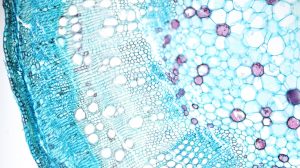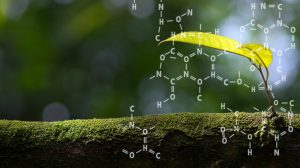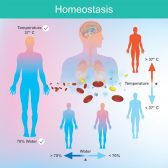Definition
noun, plural: glycogenoses
A metabolic disorder caused by a defective glycogen metabolism resulting in the extra glycogen storage in cells
Supplement
Glycogen storage disease or glycogenosis refers to a group of metabolic disorders due to the improper metabolism of glycogen. It involves certain enzymes that have become defective or deficient and therefore affected glycogen metabolism. The outcome is the excessive deposition of glycogen in cells.
There are different types of glycogenosis depending on the enzyme deficiency involved. Each of these types involves a different gene, and therefore a different enzyme deficiency. These types are as follows:
- Type 0 glycogenosis
- Type 1 glycogenosis (von Gierke’s disease)
- Type 2 glycogenosis (Pompe disease)
- Type 3 glycogenosis (Cori’s disease or Forbes’ disease)
- Type 4 glycogenosis (Andersen disease)
- Type 5 glycogenosis (McArdle disease)
- Type 6 glycogenosis (Hers’ disease)
- Type 7 glycogenosis (Tarui’s disease)
- Type 9 glycogenosis
- Type 10 glycogenosis
- Type 12 glycogenosis (aldolase A deficiency)
Glycogenosis may be classified as genetic or acquired. Genetic glycogenosis involves pathological mutations of certain genes (subsequently, producing defective enzymes).
The disease generally involves enlargement of liver, heart, or striated muscle, including the tongue, with progressive muscular weakness. In some patients, prominent liver involvement is presented. In others, more generalised storage of glycogen occurs, sometimes with prominent cardiac involvement.
Synonym(s):
- glycogen storage disease (GSD)
- dextrinosis
See also:







